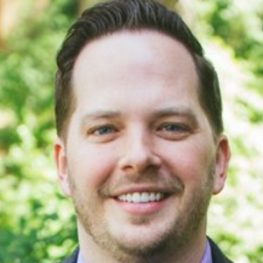Genomenon Releases Updated Search Engine to Accelerate Rare and Genetic Disease Diagnosis
November 6, 2019
Genomenon Releases Updated Search Engine to Accelerate Rare and Genetic Disease Diagnosis

Photo: Mark Kiel, co-founder and chief science officer of Genomenon
Genomenon has released an updated version of its Mastermind genomic search engine that now includes the ability to search the entirety of the genomic literature by phenotypes, or symptoms that it says will further accelerate diagnosis of patients with genetic and rare diseases.
Patients, particularly those with rare diseases, don’t always have a name for their condition. This makes it very difficult to diagnose and treat their disease. The ability to search the genetic literature by symptoms—following the Human Phenotype Ontology—helps clinicians narrow their diagnosis to the appropriate disease and treatment.
The ability to search by phenotype was the top feature requested by the children’s hospitals and genetic testing labs that use Mastermind for variant interpretation, and a preview of the new version was well received at the American Society for Human Genetics annual meeting in October.
“The ability to search by phenotype gives Mastermind users even more power to discover which genes in a patient’s DNA are most likely to be relevant based on empirical data in the medical literature.” said Mark Kiel, co-founder and chief science officer of Genomenon.
Genomenon says its Mastermind genomic search engine is the world’s largest and most complete source of genomic evidence. Doctors and researchers use it to find the scientific evidence relevant to their patients’ DNA profile for diagnostic and therapeutic recommendations.
“We are world-renowned for the speed of our whole genome sequencing interpretations, and using Mastermind has been a crucial step in accelerating our progress.” said Shareef Nahas, senior director of clinical operations for Rady Children’s Institute for Genomic Medicine. “This new functionality will be invaluable in our ongoing work to diagnose and treat babies with rare diseases.”
Author: Rare Daily Staff

Stay Connected
Sign up for updates straight to your inbox.
